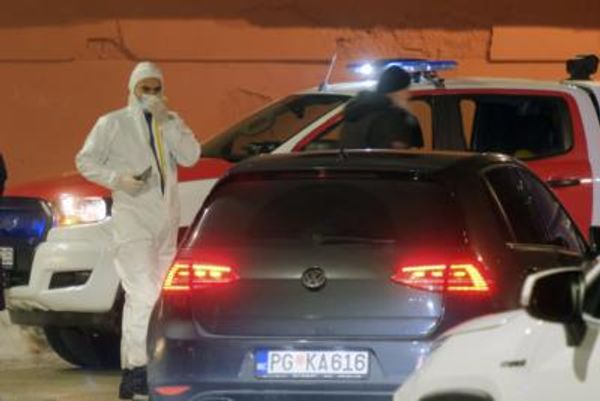
Babes in Toyland, the recently reunited Minneapolis trio founded by Kat Bjelland in 1987, were a major force during their 90s heyday. They played Lollapalooza, got a primetime shout out from Beavis and Butt-Head, marshalled a wave of fierce femme rock (which Thurston Moore cringingly named “foxcore”), and inspired upstarts such as Bikini Kill and Jack Off Jill into action. And yet, as Kathleen Hanna recently observed, BiT – and Bjelland – have slipped out of the history books over the ensuing decades: “In the 90s, Babes in Toyland was a band that was hugely important to us and we were like, God, if only we could play awesome shows like Babes in Toyland. And now, you know, I meet girls who have no idea who they are. And I watch them be erased.”
Rock tends to have a one-in-one-out policy for women, and Bjelland’s star has been roundly eclipsed by long-time frenemy and perennial provocateur Courtney Love (who very briefly joined Babes in Toyland, of which encounter Bjelland said: “Courtney practised with Babes in Toyland only once, and it sucked. After that, it was like ‘Bye, Courtney’”).
The two were constantly at odds, and Bjelland played out their feud with a knowing eye in the video for BiT’s Bruise Violet single, which featured a coterie of Bjelland doppelgangers in “kinderwhore” drag. Among them was the artist Cindy Sherman, whose photographs would provide unforgettable cover art for two of the band’s albums. Some dismissed the Love-Bjelland feud as petty grrrl stuff – or worse: reduced it to a boner-worthy cat fight, mostly because they were too witless to appreciate the queer and complex power dynamics at work in such intense female relationships. True believers saw it for what it was: an electrifying clash of equals where love, rivalry and obsession had become indistinguishable – a radical sameness.
Like Sleater-Kinney, BiT were closely associated with riot grrrl, yet always very much their own, wild entity. Bjelland was a five-foot Rhoda Penmark whose raw, bloodcurdling vocals and corrosive Rickenbacker chords could melt your face off, yet years on, she’s a woefully underappreciated frontwoman. Scan her discography and you’ll hear thrashing proto-grunge, demented garage, rattling blues, twanging psychobilly, soupy metal and brilliantly chaotic solos – a collision of 90s alt-rock at its most potent. Bjelland excelled at thick, agile punk riffs, crafting an unfuckwithable classic in Handsome and Gretel. But she was equally formidable sans distortion pedal, as evident on the 12-string sanitarium baroque of Quiet Room.
Bjelland recorded a handful of hokey covers with BiT – Little Richard’s The Girl Can’t Help It, the Carpenters’ Calling Occupants of Interplanetary Craft and a hilariously unhinged reworking of Eric Carmen’s pity-party power ballad, All By Myself. Her own songs – in Babes and post BiT-band Katastrophy Wife – were darker, eldritch things: blackened fairytales, apocalyptic, sci-fi-laced reveries and druggy, violent hexes smeared with paranoia, profanity and feedback. Bjelland revelled in noise and ugliness, crafting a feral femininity that reduced men to objects (“he’s my thing I keep on a hook”) and elevated the female body to a fearsome weapon (“my thighs are vices, yeah!”).
Few frontfolk could best Bjelland’s howling, demented, eyes-rolled-back rock. She was fiercely agile on stage and gleefully sinister on the mic, pushing her voice into demonic, Diamanda Galas-style registers on Jungle Train and talking in tongues on the sprawling, mad Angel Hair. Bjelland made music that felt like shock therapy, pulling perhaps from her own, personal darkness – ongoing struggles with drug addiction and poor mental health.
BiT folded in 2001, leaving behind three studio albums and a legacy deserving some serious reappraisal. Bjelland kept busy with a shifting cast of players in Katastrophy Wife, releasing two well-received LPs in the early noughties before slipping off the radar. Until now, that is. With a long hoped-for Babes reunion officially in the works, that deprived generation will get to see Bjelland and bandmates back in action.







